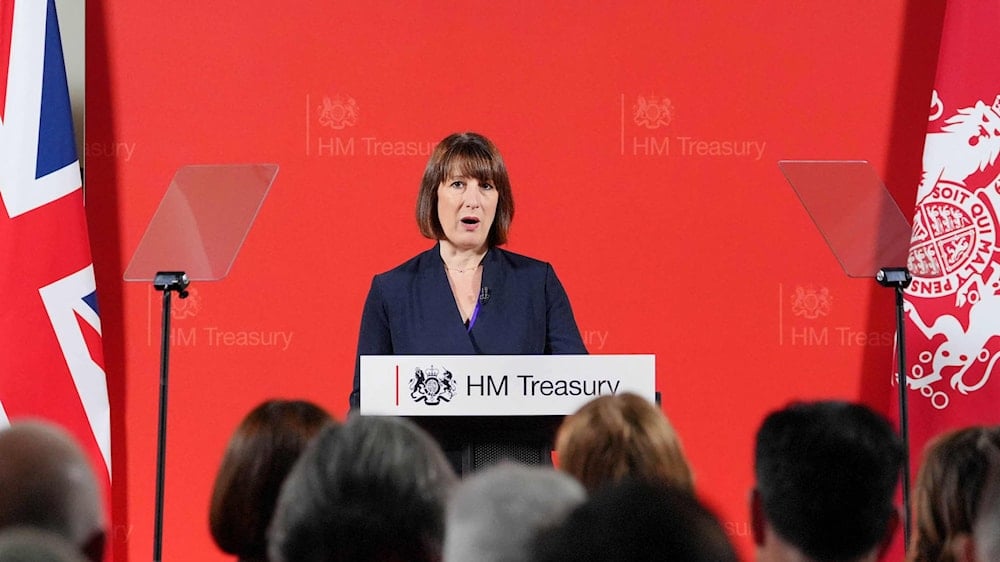UK owes what it produces: GDP ties with debt in a first since 1960s
The Chief Secretary of the UK's Treasury says that this will put the Labour government in front of "difficult choices" to
-

Britain’s Chancellor of the Exchequer Rachel Reeves delivers a speech at the Treasury, to an audience of leading business figures and senior stakeholders, announcing the first steps the new Labour Government will take to deliver economic growth, in London on July 8, 2024 (AFP)
The UK's national debt has climbed to 100% of its Gross Domestic Product (GDP), marking the highest level since the 1960s, The Guardian said in a Friday report.
In other words, Britain now owes an amount equal to the total value of all goods and services it produces in a year.
This is one of the key challenges facing British Chancellor Rachel Reeves, who is currently preparing October's budget.
Read more: UK economy stalls, setting back new government
Data from the Office for National Statistics (ONS) reveals that the government's debt as a percentage of GDP rose by 4.3 percentage points over the year leading up to August, reaching an amount equivalent to the total annual output of the economy.
Government borrowing, which represents the gap between public sector spending and revenue, amounted to £13.7 billion. This marks an increase of £3.3 billion from the same month last year - the third-largest August deficit since monthly records began in January 1993.
Darren Jones, the Chief Secretary to the UK's Treasury, indicated that the data reflects the strained state of public finances left by the previous government, which would compel Labour to make "difficult choices" to recover the economy.
Read more: UK faces £2.71Bln bill to replenish stockpiles after aiding Ukraine
“When we came into office, we inherited an economy that wasn’t working for working people. Today’s data shows the highest August borrowing on record, outside the pandemic. Debt is 100% of GDP, the highest level since the 1960s,” he said.
In August, Reeves revealed her intention to eliminate winter fuel payments for most pensioners, halt plans for social care reform, and cut investment in roads, railways, and hospitals as part of an initial effort to reduce borrowing.
However, growing concerns within Labour suggest that the pessimistic tone is harming the government, with economists cautioning that actions undermining consumer confidence could negatively impact growth and employment.
Read more: UK out of top 10 manufacturing economies, Russia goes up to eighth
Data released on Friday by GfK showed that consumer confidence dropped to its lowest point since March. The decline was attributed to Reeves’s proposal to eliminate winter fuel payments for all but the most vulnerable households, along with warnings of more tough decisions ahead.
“At what is almost the halfway point of the fiscal year, the UK’s fiscal position remains challenging, and Treasury analysis suggests that the situation may deteriorate further over the remainder of the year," said Matt Swannell, the chief economic adviser to the EY Item Club.
“The government will likely have to increase spending over the next few months, due to a combination of accepting the recommendations for higher pay increases from public sector pay boards and non-labour cost overruns across a range of government departments.”

 3 Min Read
3 Min Read








